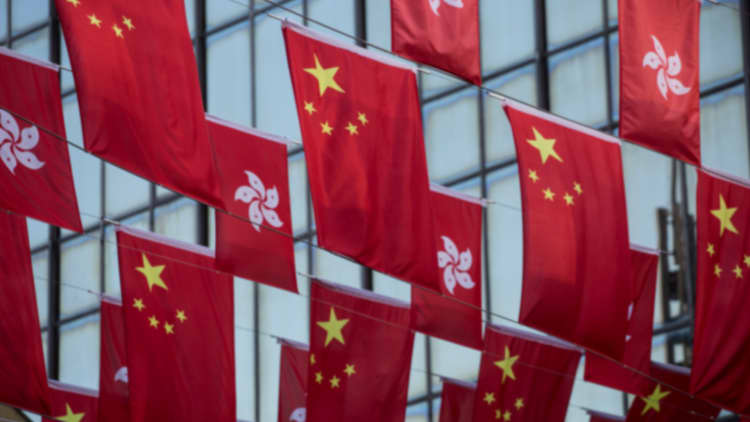Even after months of protests and escalating violence, Hong Kong is still a "very good proxy" for foreign investors wanting to access the vast China market, an economist said on Wednesday.
"Since 1997, (Hong Kong) has really evolved from quite a broad-based international financial center to now, a more China-centric offshore center. So if we take that into consideration, Hong Kong has been a very good proxy for foreign investors to invest into China-related assets," said Gary Ng, Asia Pacific economist at Natixis.
He attributed it to three factors: the territory's free capital outflow structure, its legal framework, and a very simple tax system.
Hong Kong — a former British colony that returned to Chinese rule in 1997 — has been crippled by widespread demonstrations since early June. It operates as a semi-autonomous territory under the "one country, two systems" principle, a structure that grants Hong Kong citizens some degree of financial and legal independence from the mainland.

What started out as protests against an extradition bill has morphed into broader anti-government demonstrations, including a wider range of demands such as greater democracy and universal suffrage.
The unrest has hit Hong Kong's economy with the Asian financial hub sliding into a recession for the first time in a decade in the third quarter.
"For right now, it's really about whether there is another replacement within the region to compete with Hong Kong," Ng told CNBC's "Capital Connection."
"It's very hard to find a very quick replacement," Ng added.
Some bankers and wealth managers said they recently received more queries from clients about moving funds from the Chinese-ruled city to Singapore, another Asian financial hub often seen as a close rival to Hong Kong.
J.P. Morgan told CNBC recently that foreign exchange deposits into Singapore banks have ramped up "quite sharply" in recent months, while Goldman Sachs said last month that Hong Kong might have lost as much as $4 billion in deposits to Singapore in the June to August period.
Limited inflows into mainland cities
There are still parts of Hong Kong's financial industry that cannot be easily shifted, Ng said, but noted that some cities in mainland China could challenge the territory's status.
"When China starts to open more of its onshore market, we will start to see more financial development ... this is going to attract more inflows from foreign investors into the onshore market directly," said Ng.
However, China maintains relatively close capital account conditions now — a stark contrast to Hong Kong's free capital flows. "I think this is quite important for investors and also generally for the financial market itself," Ng added.
"There will be a certain substitution effect, but however, in terms of the current investments parked in Hong Kong, I think that change will still be quite limited unless China really speeds up in opening the onshore market," said Ng.
Natixis expects Hong Kong's economy to contract by 1% to 2% in 2019. If current tensions persist, the economy could also shrink by 2% to 3% in 2020.
Hong Kong's economy contracted 2.9% in the third quarter of 2019 from a year ago. On a quarterly basis, it shrank 3.2%.
— CNBC's Grace Shao and Eustance Huang contributed to this report.

